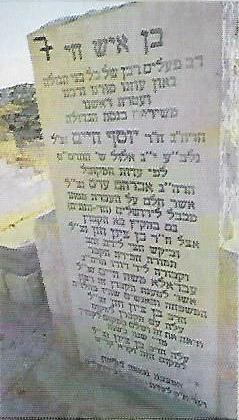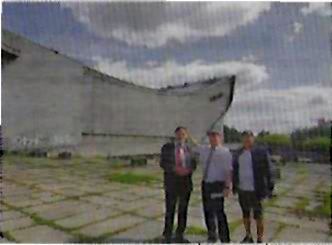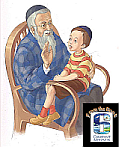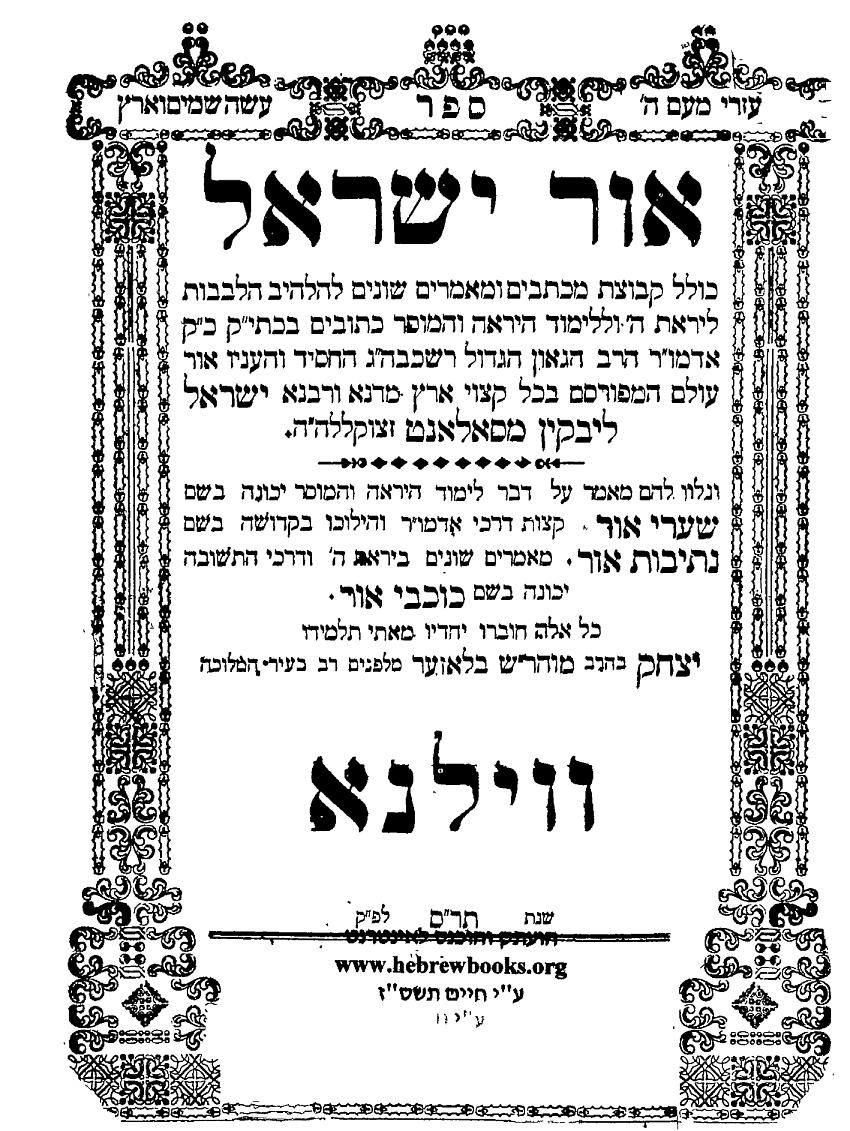  |
|
| ||||||||||||||||
|
This Google Custom Search looks only in this website. Useless Elections — The Situation is the Same as it Was
As of Thursday, the election results are substantially final, even if not yet officially final, and the balance of power is the same as it was before the elections. The Israeli electorate is deeply divided and does not give a decisive advantage to either side.
13th of Elul 5669
HaRav Ben Zion Chazan, rav of the Jewish Quarter and editor of the works of the Ben Ish Chai, was sitting at home when he heard a knock on the door. Rav Chazan asked the man on his threshold what he wanted and an amazing story unfolded:
At the conclusion of the shiur klalli which the Rosh Yeshiva, HaRav Gershon Edelstein, delivered to the student body of Yeshivas Ponovezh, he spoke on There is an international battle being waged these days to prevent a renewed threat of violation of the ancient cemetery in Vilna, Lithuania, where the remains of Jewish great tzaddikim of Vilna of past generations, headed by the Vilna Gaon himself and his eminent father, HaRav Shlomo Zalman Kramer, his grandfather, the Be'er Hagola and his family are interred. In this ancient cemetery are also buried the Chayei Adam and many additional distinguished figures.
When Hashem looked for Adam in Gan Eden and called out to him, "Ayekha?" Adam hid himself. He felt that since he had sinned in the only commandment he had been given, how could he dare face his Maker in his nakedness. He had no legitimate excuse, and therefore hid from Hashem in shame.
Surely, we cannot presume that Hashem didn't know where he was. The question was a way of addressing Adam so as not to frighten him, and a way to help Adam start the conversation. He wanted Adam to realize thoroughly that even though he had sinned, he was still acceptable before Hashem and Hashem still sought him.
We originally published this in 1995, about 24 years ago. Written by the founder of the Mussar movement, it provides basic insight and guidance into learning Mussar all year — and especially in Elul. This is always timely and important.
Part II
HaRav Shlomo Wolbe once said, "It is almost impossible to do teshuva without being familiar with these letters in Or Yisroel (7 & 8)." We are happy to be able to present Letter 7 here in translation, along with some other selections. Readers are advised that the material is dense and difficult, and it requires attentive and serious study.
The first part noted: It is vital to study mussar, especially during Elul, for two reasons. The first part discussed the first aspect. This is the physical aspect, that each man and his family are in great physical danger. When the shofar is blown on Rosh Hashana, it is a time of great judgment, when man's deeds are recalled and he is judged.
From Our Archives
by Pinchas Moses
After more than a hundred years the Interior Minister has decided to violate the condition upon which the Rothschild Family consented to donate more than 75,000 acres of valuable land to the State.
The story began way before the first years of the State of Israel. The grandson of renowned philanthropist Edmund de Rothschild, wanted to help the new nation-in-formation, and found an original means of doing so by transferring more than 75,000 acres of family-held land. He set one condition for the contribution: that out of all of the tens of thousands of acres transferred to State ownership, a "small" tract be set aside for the family in the area of Caesaria.
And since it's generally considered unwise to argue with such important contributors, the State "agreed" to accept the contribution along with the attached condition.
by Rabbi Yerachmiel Shlomo Basner
Our rabbis established the custom of blowing the shofar during Elul in order to awaken us to do teshuva. Reb Aharon Kotler, zt"l, writes that we have inherited a great fortune: we can attain great heights in teshuva, Torah, and service of Hashem during Elul with comparatively little effort, as compared with the rest of the year. It is important to capitalize on this month since if we let this chance go by, not only do we lose a golden opportunity but it is also tantamount to showing that we are not interested in doing teshuva, chas vesholom.
There are at least four reactions that one can have to Elul. One is that a person doesn't see any faults in himself that need improvement. This, of course, is merely a ploy of the yetzer to keep the person from doing teshuva, and hopefully most of us do not harbor such overconfidence.
by L. Jungerman
This week contains the portion of the tochochoh, the Divine Rebuke. The Midrash asks in Parshas Re'ei why the baal korei does not interrupt the Torah reading before he has completed the entire Rebuke and its curses. In other words, why is it that the person who is called up to that section must bear going through the entire gamut of curses, when these could have been divided up among the others who are called up before and after him? It replies: Said R' Chiya ben Gamda: This is because it is written, `The rebuke of Hashem, my son, do not despise' -- do not reduce the rebukes to chopped up chunks.
Shem MiShmuel explains this thought in the name of his father, author of Avnei Nezer, saying that the curses are not an end in of themselves. Rather, they are an opening, an aperture and doorway to a person to repent through them, as it is written in Iyov, "And he revealed/exposed their ear to rebuke." And if this is true, and the purpose of the curses and their reading is not an end in and of themselves but rather as a door to something else, there is no point in breaking them up. To do so can be compared to a person who comes to a place but remains standing in the doorway.
EARLIER EDITORIALS
A Mission to Spread
Daas Torah
Looking for the
Best in Yiddishkeit
The Immorality
of Palestinian Combatants and Noncombatants
|
|||||||||||||||







